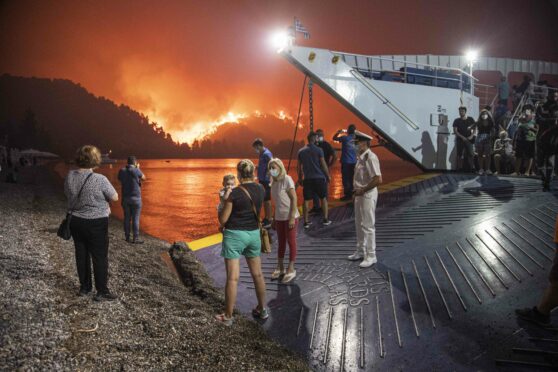
Global warming is happening faster than was previously feared and will break through a dismaying landmark a decade earlier than anticipated, the United Nations will reveal tomorrow.
The UN’s Inter-governmental Panel on Climate Change will show, following the most comprehensive study of climate change yet, that warming could reach the 1.5C threshold within ten years, a decade earlier than anticipated three years ago.
Under the 2015 Paris Agreement, countries agreed global warming must be limited to well below 2C and pledged to push for efforts to hold it to no more than a 1.5C increase on pre-industrial levels.
The new forecast will be published tomorrow and it’s anticipated will form a key part of negotiations in the lead-up to the COP26 climate change conference in Glasgow in November.
Three years ago, the IPCC had 2030 at the most pessimistic end of its forecast for reaching 1.5C and suggested the increase would be reached between 2030 and 2052.
However, tomorrow’s report will suggest the increase will be reached at the quickest time anticipated, with the conclusion that global warming is accelerating.
The IPCC’s conclusion will warn of a greater than 50% chance of the world’s temperatures rising by more than the 1.5C within the next ten years, with the planet now estimated to be about two-thirds of the way towards reaching the threshold.
According to the World Meteorological Organisation, the average temperature will be at least 1C warmer than pre-industrial levels over each of the next five years.
Meawnhile, another study has warned that the ocean current responsible for western Europe’s mild climate could be at risk of collapse due to global warming.
A study by German scientists found the Atlantic Meridional Overturning Circulation (AMOC) could have reached a point of “almost complete loss of stability”.
Lead author Dr Niklas Boers said it could trigger further changes in other key components of the climate system, such as Antarctic ice sheets and the Amazon rainforest.
The Gulf Stream, the warm current flowing from Florida across the Atlantic towards Europe, is part of the AMOC and makes western Europe significantly warmer than it otherwise would be.
Meanwhile, COP26 president Alok Sharma has been criticised after reports he’d flown to 30 countries in the past seven months. He also used an exemption for ministers to avoid quarantine on his return despite several of the countries visited being on the Covid red list.
Downing Street officials defended Sharma and said his international visits were a key part of negotiations for the Glasgow conference.

Enjoy the convenience of having The Sunday Post delivered as a digital ePaper straight to your smartphone, tablet or computer.
Subscribe for only £5.49 a month and enjoy all the benefits of the printed paper as a digital replica.
Subscribe